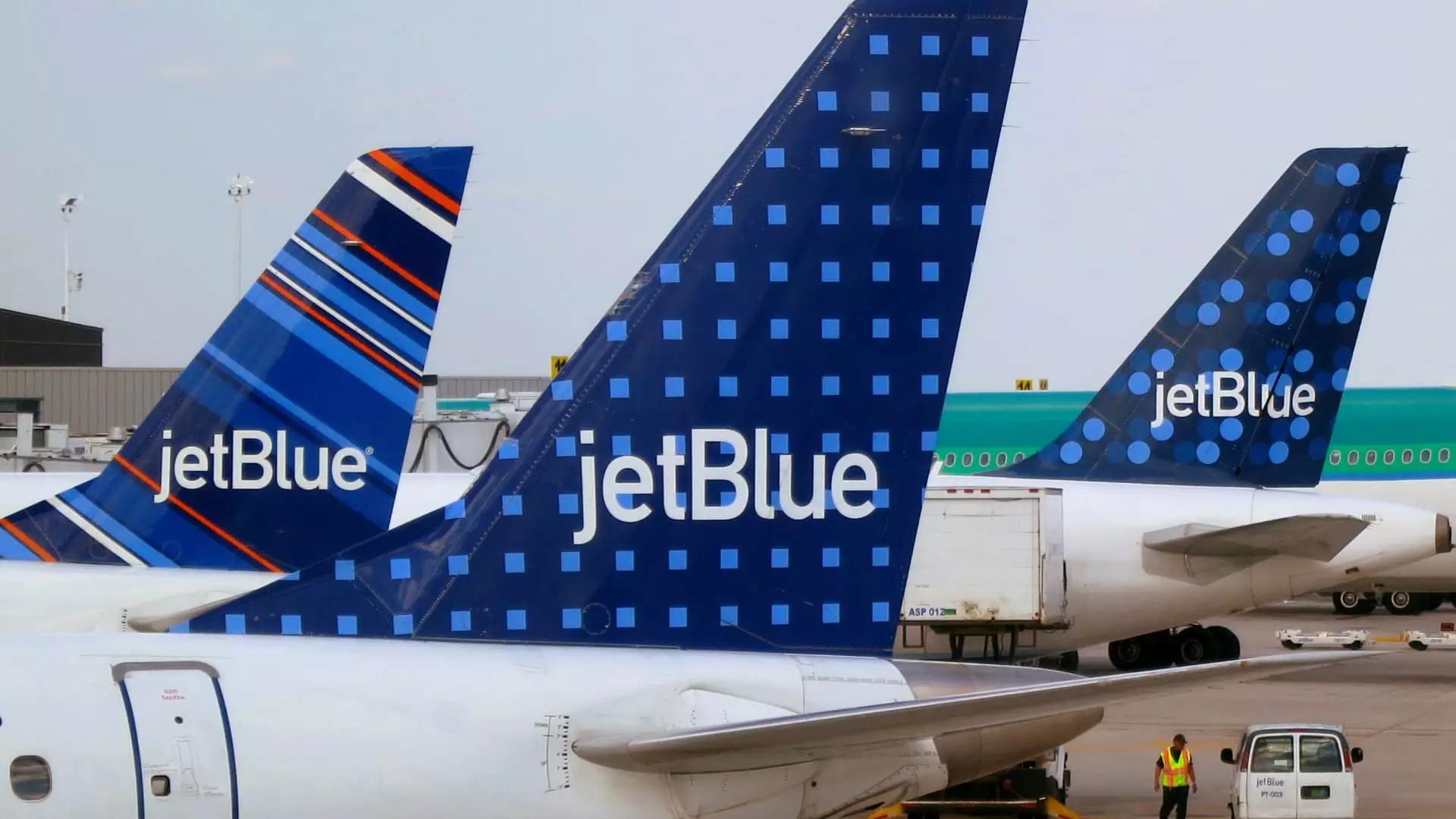In a landmark decision, the U.S. Department of Transportation (DOT) has levied a hefty $2 million fine on JetBlue Airways due to what officials describe as “chronically delayed flights.” This punitive measure marks the first time penalties of this nature have been imposed on an airline, signaling a shift in how government authorities are tackling air travel disruptions. The investigations revealed that JetBlue had significant delays on numerous routes, with some experiencing over 145 delays from mid-2022 through late 2023.
The routes under scrutiny included key connections such as those from John F. Kennedy International Airport (JFK) to Raleigh-Durham International Airport, and several others between Florida airports. The DOT found that JetBlue was accountable for an alarming 70% of disruptions on these routes alone. This begs the question: what are the underlying factors contributing to such severe delays? While weather and air traffic congestion can play substantial roles, the DOT has highlighted an apparent failure by JetBlue to adjust flight schedules adequately, thereby allowing for what it labeled as “illegal unrealistic scheduling.”
Transportation Secretary Pete Buttigieg emphasized the necessity for the airline industry to realign its operations to meet the actual capabilities of its flight schedules. His statement illustrates a growing impatience with carriers that allow for chronic delays, a situation that inconveniences countless travelers. Secretary Buttigieg’s remarks put JetBlue—and by extension, other airlines—on notice, demanding that they adhere to regulations and provide timely service to their customers.
Contrary to the DOT’s sweeping assertions, JetBlue quickly shifted some of the responsibility back to the government, citing the urgent need for modernization of air traffic control systems and staffing improvements. In their defense, they argue that the chronic delays cannot solely be blamed on the airline’s operations. JetBlue’s management echoed broader sentiments shared among other major carriers, including Delta and United Airlines, that operational inefficiencies at a governmental level persistently affect travel reliability across the nation.
The DOT defines a “chronically delayed flight” as one that is operated at least ten times a month and is late more than 30 minutes over half of the time. By this rigorous standard, JetBlue found itself under the microscope, leading to this unprecedented fine. Furthermore, this incident highlights a more extensive investigation that the DOT is conducting into several airlines for their flight scheduling practices. Such scrutiny underscores an agenda to tighten regulations in an industry known for its logistical challenges.
Analyzing JetBlue’s operational statistics reveals a mixed picture. Despite the fine and reputational damage associated with it, JetBlue has made strides in improving its on-time arrival rates. The airline reported a 71.3% on-time performance from January to September 2024, a notable improvement from the previous year’s performance of 64.9%. While this indicates a positive trajectory, customer perception is likely to remain impacted as they grapple with the fallout from this situation.
As JetBlue navigates the implications of this fine, the airline also points to immediate corrective actions, including the issuance of $1 million in goodwill compensation to affected passengers. This assertion of accountability could mend relationships with consumers, though whether this effort is enough to restore faith remains to be seen.
Going forward, the industry must heed the warnings issued by the DOT. The accountability found at JetBlue should serve as a cautionary tale for other carriers as well. As air travel continues to recover and grow, the focus on realistic scheduling, operational transparency, and passenger satisfaction should be paramount. Only by prioritizing these areas can airlines hope to thrive in a competitive market while simultaneously meeting the expectations of regulators and travelers alike.


Leave a Reply